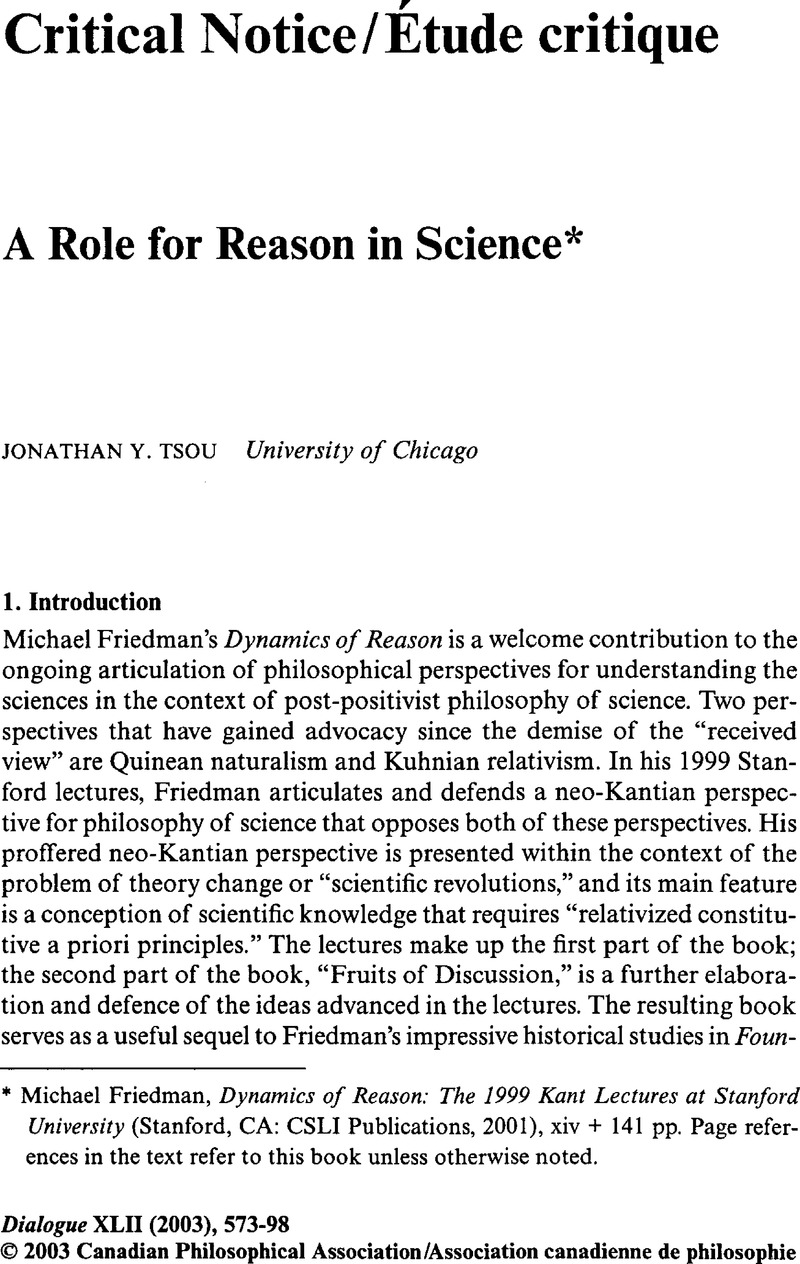Crossref Citations
This article has been cited by the following publications. This list is generated based on data provided by Crossref.
McArthur, Dan
2005.
Normative Naturalism and the Relativised A Priori.
Journal for General Philosophy of Science,
Vol. 36,
Issue. 2,
p.
331.
McArthur, Dan
2008.
Theory Change, Structural Realism, and the RelativisedA Priori.
International Studies in the Philosophy of Science,
Vol. 22,
Issue. 1,
p.
5.
Goldberg, Nathaniel Jason
2009.
Historicism, Entrenchment, and Conventionalism.
Journal for General Philosophy of Science,
Vol. 40,
Issue. 2,
p.
259.
Tsou, Jonathan Y.
2010.
Putnam’s account of apriority and scientific change: its historical and contemporary interest.
Synthese,
Vol. 176,
Issue. 3,
p.
429.
Tsou, Jonathan Y.
2015.
Kuhn’s Structure of Scientific Revolutions - 50 Years On.
Vol. 311,
Issue. ,
p.
51.



